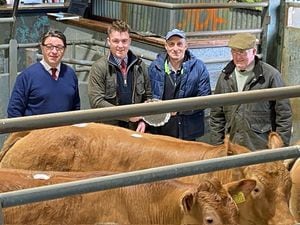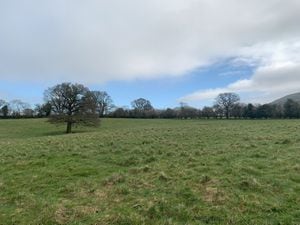Narrow thinking is enemy of sustainable farming
Talking to a lot of my farming friends it is very clear that in many ways there are no two farms the same and the general mixed farm has gone many years ago.

Farming has become specialised and farmers' knowledge and skills have also become specialised, and now farm businesses tend to operate in a particular section of the industry.
In many ways this is the way of making your farming business profitable. Can you remember the saying ‘a Jack of all trades and a master of none?’ Well, many farmers were just that. But now profitable farming businesses are managed by people who are masters of their trade who are knowledgeable and skilled to the very highest levels within their particular trade or discipline, whether this is within the livestock or arable sectors.
But my question here is that being an expert in one sector means a lot of knowledge and skills have been lost and farmers must be careful not to become too narrow in their thinking and lose the ability of thinking outside of the box in moving the business into new avenues and therefore be sustainable in the long term future.
I can remember talking to a farmer who was primarily a dairy farmer and I had a very interesting time listening to him discuss the fine detail of how to produce the highest quantity and the best quality milk. But when we discussed some other business management strategies such as finance management, SWOT analysis, and so on, the eyes glazed over and the interest of this particular farmer was lost.
And then I remembered a paragraph in a book that one of my old farm management lecturers wrote: “Financial management can easily become regarded, by farmers, as a tedious, uninteresting pastime, obsessed with past history and epitomised by the chore of ‘doing the books’ on a wet weekend. This is little short of a tragedy, since financial management is not only vital to the wellbeing of the farm businesses and their owners, but is a fascinating process in itself."
I agree with my old lecturer and I also acknowledge a balance is required between all the masteries and disciplines of managing a farm and making it a successful business.
It is therefore clear that successful farming is an understanding of the farm as a resource and the knowledge and skills required for its production, whatever that might be, combined with business management knowledge and skills in ‘the management process’ in order to maintain future business sustainability.
Education and training, in my view, are key to impress on young people the importance of knowledge and skills required for production and the knowledge and skills required to manage a successful business and to motivate and excite people in the fascinating process of business management.
In February the new wave of BTEC Higher National qualifications in land-based subjects (Agriculture, Animal Management and Horticulture) come out ready for deliver by colleges and universities from September 2018 onwards. This new breed of qualifications are delivered in a vocational manner, have academic integrity and will lead onto worthwhile careers. Check them out by going online to BTEC Higher National qualifications.
Chris Jones is involved in land-based education, training, and mentoring.





